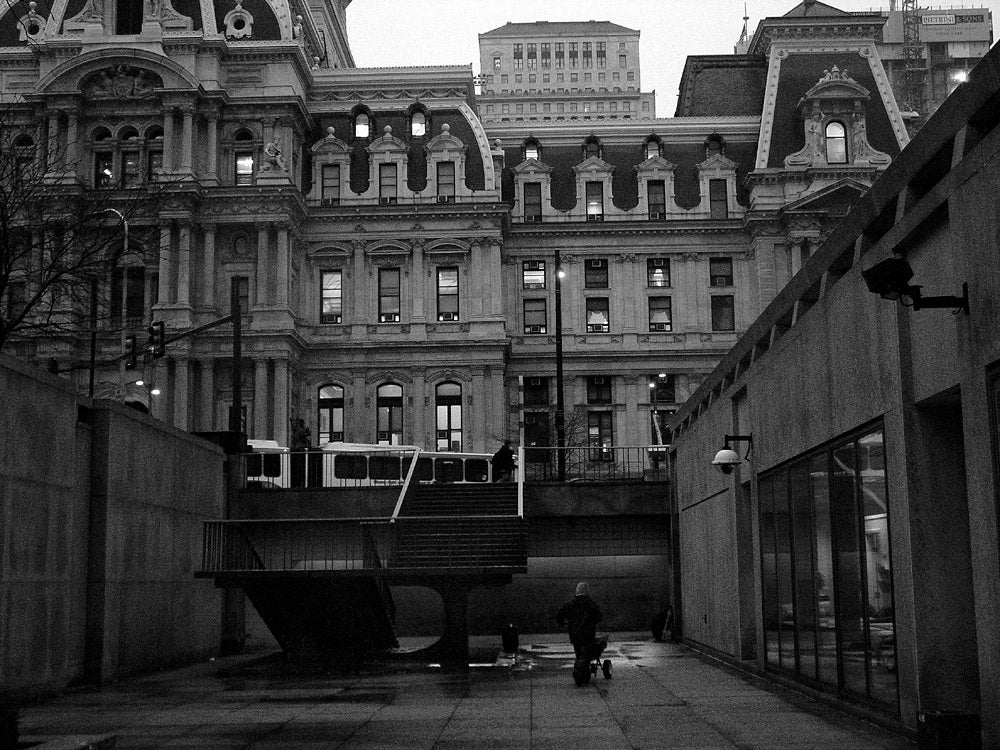Updated: Clarke bill would allow advertising on municipal property

Councilman Bobby Henon introduced a bill on behalf of Council President Darrell Clarke Thursday morning allowing for digital signs and advertisements to be installed on municipal property. The proposal, which Clarke initially floated at the end of 2011, is being framed as a way for the city to generate new sources of revenue as well as more effectively communicate public service messages and emergency information.
The bill, which would amend the Planning and Zoning chapter of the Philadelphia Code, is “intended to balance the public interest in maintaining a safe and attractive City; the interests of businesses and other entities in promoting their products, services and ideas; and the interests of the City and other governmental bodies in communicating public service and emergency messages on a city-wide basis through an integrated network of signage on municipal property.”
Its regulations would apply to all city-owned property. Signs would be required to accommodate both programmed advertising and real-time public-service announcements. They would be integrated into the city’s emergency response network, and the city would be able to override any programmed advertising in the event of an emergency. In addition, the city would be entitled to “a percentage of the regularly scheduled programmable time.”
According to the bill, the municipal advertising program would not be subject to any non-accessory sign regulations put forth elsewhere in the zoning code. A new set of non-accessory sign regulations failed to get through City Council late last year; a new bill is expected to be introduced soon.
The Planning Commission would need to establish regulations to implement the program. Furthermore, the bill allows the “appropriate department” to establish regulations for sign placement that would take into account the aesthetic and environmental characteristics of the surrounding area, the historical character of the property itself, and public health and safety concerns.
Stephanie Kindt, attorney for the group Scenic Philadelphia, formerly SCRUB, said her biggest concern is that the program the bill would implement would not be subject to other zoning code regulations.
“We definitely are concerned with the enormous breadth and scope of the bill.” Kindt said. “… It could really change the entire look and feel of the city.”
Council President Clarke said the zoning regulations for ads on municipal property would depend on the individual property.
“It will be different,” Clarke said. “I don’t want to say more or less.”
Although the bill cites similar programs in other cities—New York, Chicago, Dallas, San Francisco, Boston and St. Louis—Stephanie Kindt said she couldn’t think of another place where a bill this wide-ranging had been implemented, and that there are drawbacks to municipal advertising programs in any city.
“It just doesn’t seem that enough thought has been given to this strategy in terms of what we’re actually getting in terms of revenue, and what the cost would be,” Kindt said.
Clarke said some details of the administration of the program would need to be worked out in Committee, but that he’s confident the bill is both right for the city and will garner support from a majority of Philadelphians. A Pew poll conducted last year, and cited by Clarke’s office, suggests that more Philadelphians favor a municipal advertising program than oppose it. The poll shows more people opposed to a sugary beverage tax than to a program like the one recommended by Clarke’s bill.
Clarke says he is “absolutely not” concerned about the program having a negative effect on the public realm.
“We went around and looked at different locations that have examples of how tastefully done those things can be,” Clarke said. “We feel very comfortable and confident that they will be accepted by the overwhelming majority of people in the city of Philadelphia. This whole issue about how people will respond to billboards and digital signs—the reality is, billboards and digital signs are throughout the city of Philadelphia. The challenge is: one, we’re not getting significant revenue from that; two, it’s happening anyway; three, if the city of Philadelphia owned the property that the signage or advertisement was placed on, we’d have more control over the content and the placement and the type of sign. So I think having the city of Philadelphia engaged in that process would actually enhance the ability to have it done tastefully.”
Contact the reporter at jbrey@planphilly.com and follow him on Twitter @jaredbrey
WHYY is your source for fact-based, in-depth journalism and information. As a nonprofit organization, we rely on financial support from readers like you. Please give today.



